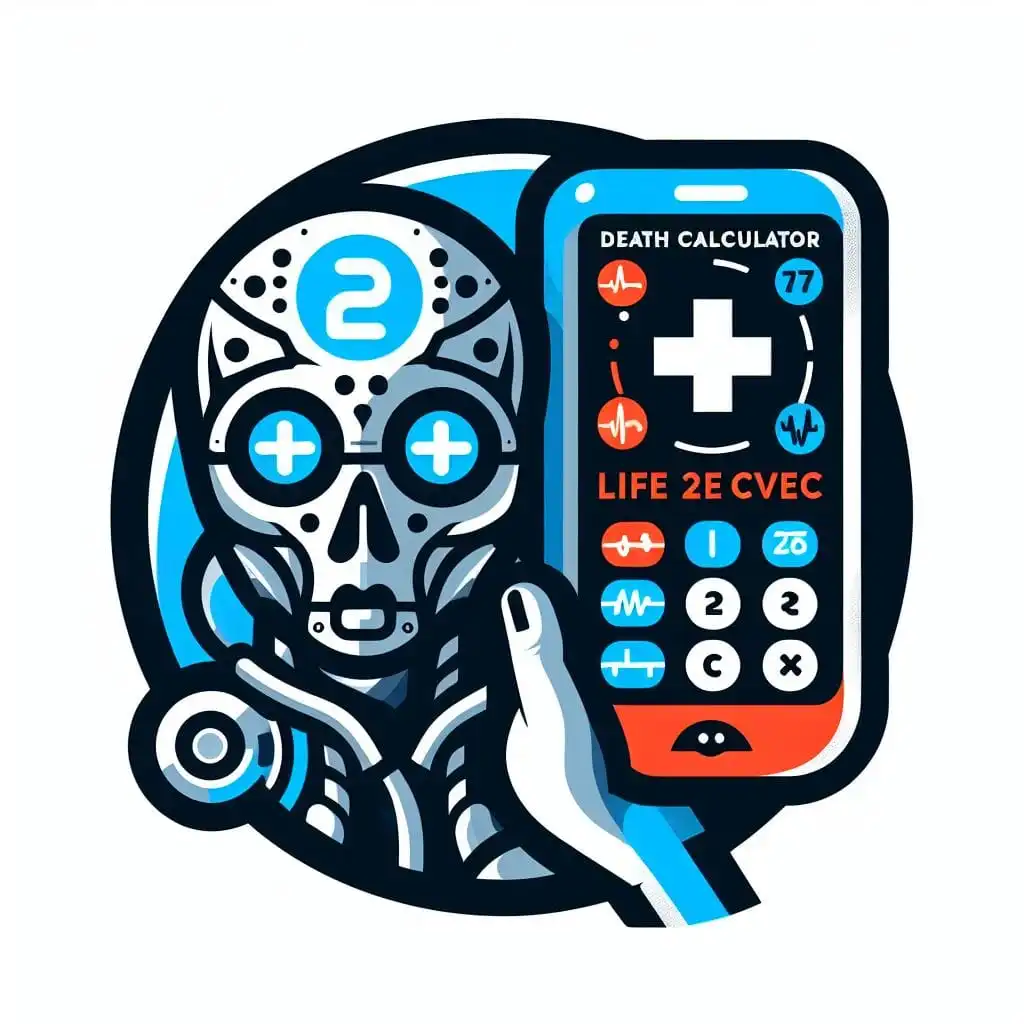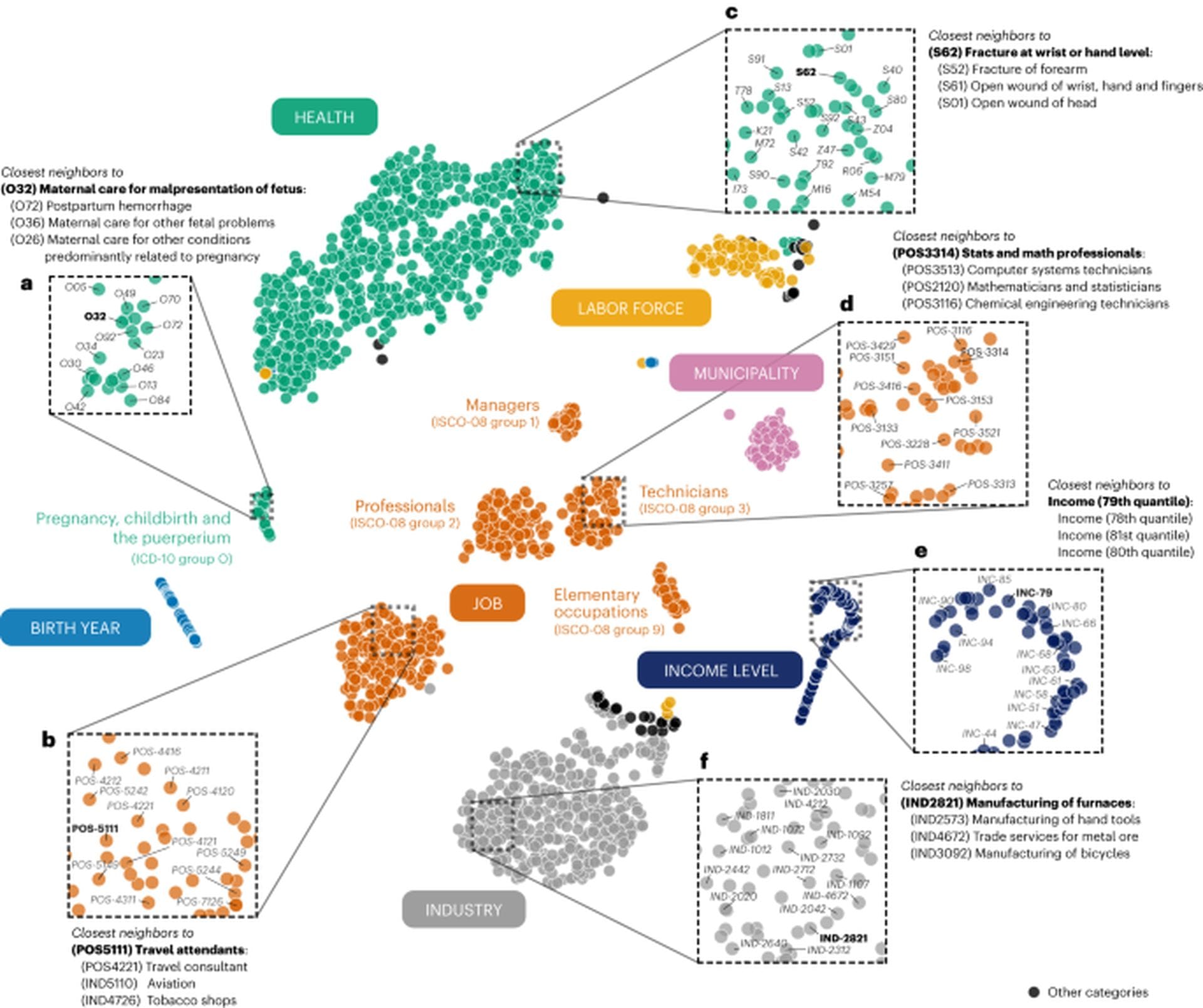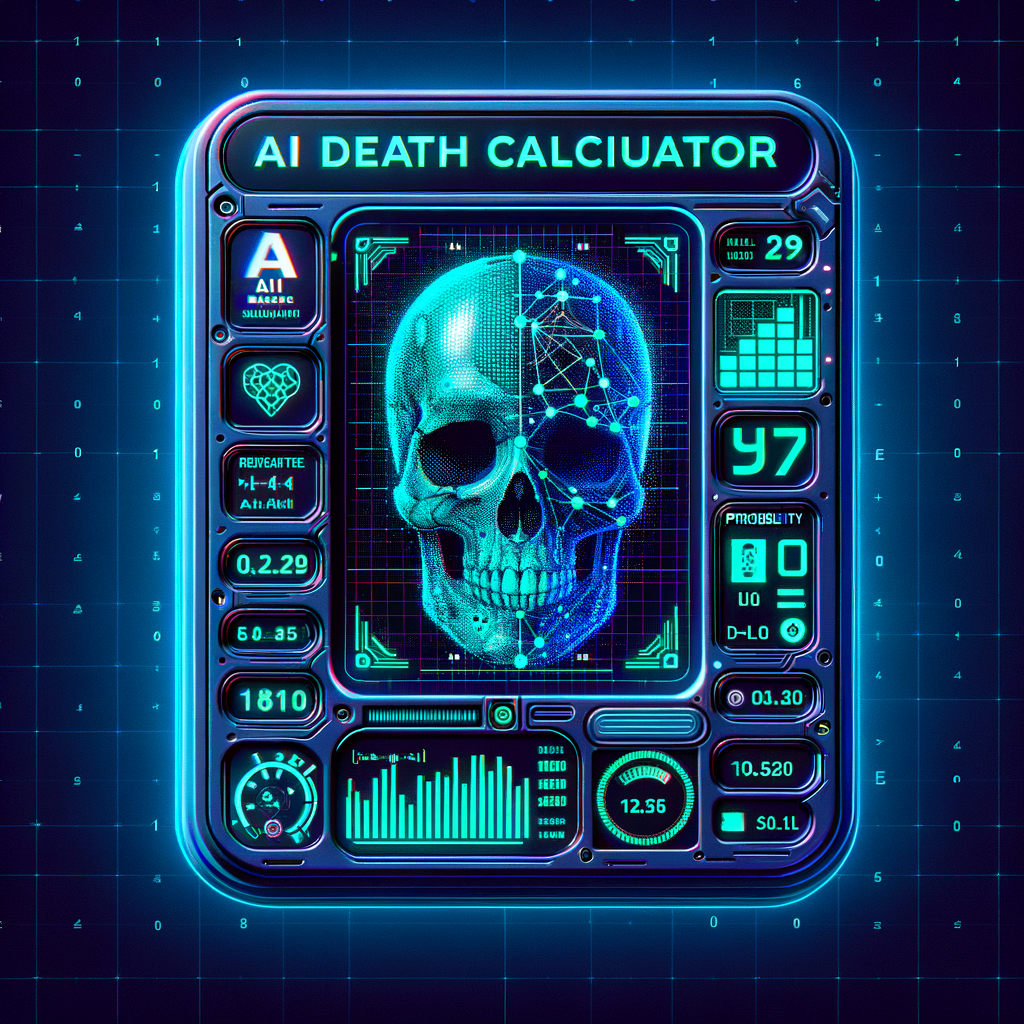Unlocking the Secrets of Longevity: How the Life2vec AI Calculator Predicts Your Lifespan
By analyzing patterns & correlations within data, the algorithm identifies complex interplay between various factors & impact on health outcomes.

Researchers from Yale University, in collaboration with the Technical University of Denmark and the University of California, Berkeley, have developed a groundbreaking tool: the Life2vec AI Death Calculator. This advanced artificial intelligence (AI) system is designed to estimate an individual's lifespan based on a comprehensive array of health and demographic data, offering personalized insights into the factors that influence longevity.
The Science Behind Life2vec
At the heart of the Life2vec calculator lies a sophisticated deep learning algorithm, trained on vast datasets encompassing health statistics and medical research findings. By analyzing patterns and correlations within this data, the algorithm can identify the complex interplay between various factors and their impact on health outcomes.
The process begins with users inputting their personal details, including age, gender, health habits, family medical history, and lifestyle choices. The algorithm then processes this information, leveraging its extensive training to recognize patterns and make informed predictions about the user's potential lifespan.
One of the key strengths of Life2vec is its ability to consider a wide range of factors that influence longevity. From smoking habits and exercise frequency to dietary choices and genetic predispositions, the calculator takes a holistic approach to lifespan estimation. By considering such a diverse array of variables, Life2vec aims to provide a more accurate and personalized assessment of an individual's life expectancy.

The Power of Continuous Learning
What sets Life2vec apart from traditional lifespan calculators is its potential for continuous learning. Some versions of the calculator are designed to incorporate mechanisms that allow the algorithm to update and refine its predictions as new data becomes available. This means that as medical research advances and our understanding of the factors influencing longevity evolves, Life2vec can adapt and provide increasingly accurate estimates.
This continuous learning capability is particularly valuable in the rapidly evolving field of health science. As new discoveries are made and innovative treatments emerge, Life2vec can integrate this knowledge into its predictive models, ensuring that users receive the most up-to-date and relevant insights into their potential lifespan.
User Experience and Personalized Insights
One of the key features of Life2vec is its user-friendly interface, which allows individuals to easily input their personal data and receive immediate lifespan predictions. The interactive nature of the calculator makes it accessible to a wide range of users, regardless of their technical expertise.
Beyond simply providing a numerical estimate of lifespan, Life2vec offers personalized insights into the factors that could influence an individual's longevity. By highlighting the impact of specific lifestyle choices and health factors, the calculator empowers users to make informed decisions about their well-being.
Moreover, Life2vec goes beyond mere predictions by offering educational content related to longevity and healthy living. Users can access a wealth of information that helps them understand the complex interplay between various factors and their potential impact on life expectancy. This educational component is crucial in promoting a proactive approach to health and encouraging individuals to take control of their longevity.

Ethical Considerations and Privacy Concerns
Despite the groundbreaking potential of Life2vec, its development and use are not without ethical and privacy concerns. The sensitive nature of the personal data required for accurate predictions raises questions about data security and the potential for misuse.
To address these concerns, the developers of Life2vec have implemented strict guidelines and safeguards to prevent the misuse of the tool by insurance companies or employers. The primary goal is to ensure that Life2vec is used ethically, with the sole purpose of benefiting individuals and society as a whole.
However, the ethical implications of lifespan prediction extend beyond data privacy. The psychological impact of receiving a lifespan estimate, whether shorter or longer than expected, cannot be overlooked. It is crucial that the use of Life2vec is accompanied by appropriate support and guidance to help individuals process and interpret the information they receive.
Furthermore, the developers of Life2vec recognize that the tool's current accuracy and limitations make it unsuitable for use in public decision-making processes. As a result, access to the calculator is currently limited to research environments, where its impact can be carefully studied and its potential benefits and risks can be thoroughly assessed.
Accuracy and Limitations
While Life2vec represents a significant advancement in the field of lifespan prediction, it is essential to understand its current accuracy and limitations. Based on the available data, the tool's predictions are reported to be within 9 years of actual longevity. This margin of error, while still significant, highlights the progress made in using AI for health predictions.

However, it is crucial to recognize that Life2vec's predictions are probabilistic rather than definitive. The calculator provides an estimate based on the input data and the patterns identified by the algorithm, but it cannot account for unforeseen life events, such as accidents, which can dramatically alter an individual's lifespan.
Moreover, the predictions generated by Life2vec are based on existing health and demographic data. They do not take into account future medical advancements or potential changes in an individual's lifestyle that may occur after the prediction is made. As such, the estimates provided by the calculator should be viewed as a snapshot based on current information, rather than a definitive forecast of an individual's future.
The Future of Lifespan Prediction
As research in the field of longevity continues to advance, tools like Life2vec are poised to play an increasingly important role in our understanding of life expectancy. The development of more sophisticated algorithms, coupled with the growing availability of health data, holds the promise of even more accurate and personalized lifespan predictions.
However, the future of lifespan prediction is not solely about technological advancements. It is equally important to address the ethical and societal implications of such tools. As Life2vec and similar technologies become more widely available, it will be crucial to foster public dialogue and establish clear guidelines for their responsible use.
Moreover, the insights gained from tools like Life2vec have the potential to drive advancements in personalized medicine and preventive healthcare. By identifying the key factors that influence longevity, healthcare providers can develop targeted interventions and support individuals in making lifestyle choices that promote longer, healthier lives.

Conclusion: Understanding Human Longevity
The Life2vec AI Death Calculator represents a significant milestone in the application of artificial intelligence to the understanding of human longevity. By harnessing the power of deep learning algorithms and vast health datasets, this tool offers personalized insights into the factors that shape our lifespan.
However, as with any groundbreaking technology, the use of Life2vec is accompanied by ethical considerations and limitations that must be carefully navigated. As research in this field continues to evolve, it is essential to prioritize the responsible development and deployment of lifespan prediction tools, ensuring that they serve the best interests of individuals and society as a whole.
Ultimately, the Life2vec calculator serves as a powerful reminder of the complex interplay between our health, lifestyle choices, and longevity. By providing individuals with personalized insights and empowering them to make informed decisions about their well-being, tools like Life2vec have the potential to revolutionize our understanding of life expectancy and pave the way for a future where we can all unlock the secrets of a longer, healthier life.




